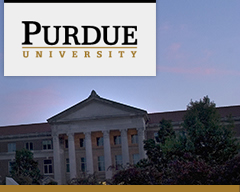There is an increasing trend in science and engineering to use first principles and physics-based simulations to predict the behavior of engineering materials and devices. Combined with experiments, powerful simulations can help researchers discover new materials functionalities, optimize devices and certify their performance in a vastly more efficient manner than using today's empirical approaches. Experience has shown, however, that the learning curve for using simulations deters many researchers who could benefit from the synergy between simulations and experiments. nanoHUB's solution is enable cloud scientific computing, where users can access over three hundred tools using their web-browser or iPads, without the need to install any software or have access to local computing resources. The tools have friendly fully-interactive graphical user interfaces, meaningful default values, and extensive support material, thus providing a gentle pathway towards advanced simulations for electronics, materials, biology and other fields. In approximately five minutes a user from anywhere in the world can be running an electronic structure or molecular dynamics simulation. The resulting simulations are powerful, yet accessible, and are often used in research as well as education.
In addition to providing free online computational simulation resources, nanoHUB provides even more educational material on many topics related to computational simulations, nanotechnology, and related areas. These materials have been used by thousands of people for self-study or within structured courses.
The goals of the nanoHUB track are to familiarize researchers and instructors with resources on nanoHUB and demonstrate the potential benefits of using simulations in research and courses.
Subscribe to RSS Feed (Opens in New Window)
